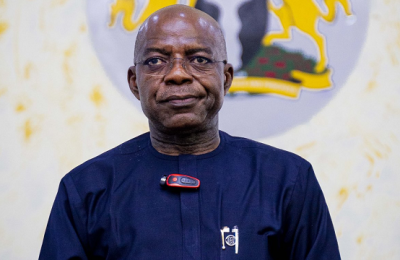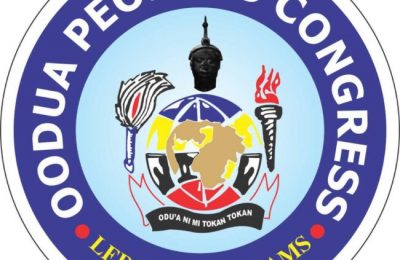
The Federal High Court in Lagos has adjourned indefinitely an application filed by the Economic and Financial Crimes Commission (EFCC), seeking a stay of execution of the ruling that lifted a forfeiture order on some assets linked to the Kogi State Governor, Yahaya Bello.
Justice Nicholas Oweibo adjourned the hearing of the application because the matter is now before the Lagos Division of the Court of Appeal.

On April 26, Justice Oweibo struck out a suit by the EFCC seeking the final forfeiture of the assets based on the provisions of Section 308(1) of the 1999 Constitution.
The Judge had held that “given the provisions of Section 308 of the Constitution, which provides immunity to a sitting governor from any civil/ criminal prosecution, the court lacks jurisdiction to entertain the matter.”
When the matter was called on Monday, the EFCC counsel, Rotimi Oyedepo (SAN), informed the court that he had filed an application dated April 27 seeking a stay of execution of the ruling pending the outcome of the appeal on the case.
But in his response, counsel to the Kogi State governor, Akoh Ocheni, asked the court to strike out the application because the anti-graft agency failed to comply with the rules of the court, which mandates it to file a written address along with the application.
Ocheni also informed the court that the matter is now before the Court of Appeal as records of proceedings have been transmitted to the upper court.
He argued that the lower court lacked the jurisdiction to continue to hear the application.
After listening to the lawyers, Justice Oweibo adjourned the matter sine die to await the appellate court’s decision.
On Feb. 22, the judge granted a temporary forfeiture order following an exparte motion filed by the EFCC seeking to seize 14 properties located in Lagos, Abuja and the United Arab Emirates (UAE), as well as N400 million, allegedly recovered from one Aminu Falala.
The Court also directed EFCC to make publication in two national dailies for any interested parties to come up with 14 and to show cause why the order should not be made absolute.
After the publication of the preservative order by the EFCC, Governor Bello filed a Notice of Intention to oppose and an application seeking the vacation of the interim forfeiture order.
The Governor, through his lawyer, Abdulwahab Mohammed (SAN), also argued that the property listed were not proceeds of an unlawful act, as they were acquired long before he was elected as Kogi state governor and could not have been received from Kogi State funds.
He further submitted that the case was in flagrant disobedience to a state high court order which restrained the EFCC or any government agency from taking action that may lead to the forfeiture of the properties.
He stated that the interim forfeiture order was obtained by either suppression or misrepresentation of facts by the Commission.
The governor also said that the proceedings of the Crime Act could not take effect in retrospect as the property in dispute was acquired before he became Kogi state governor.
He said the validity of the criminal act is being challenged at the Supreme Court.
On the issue of jurisdiction, the government stated that the properties listed were in Abuja, Kogi and UAE, and the personality involved is based in Lokoja, adding that the suit ought to have been instituted either in Abuja or in Kogi State. He, therefore, asked the court to vacate the case for lack of jurisdiction.
In his response, the counsel to the EFCC, Rotimi Oyedepo (SAN), maintained that the applicant had not placed sufficient materials before the court to convince the court to vacate the order.
Oyedepo also insisted that contrary to the Applicant’s submissions, the Kogi state high court or any other court in Nigeria has not stopped the EFCC from carrying out its constitutional duties.
He argued that while the governor enjoys immunity under Section 308 of the constitution, nothing stops the EFCC from investigating and preserving the proceeds of unlawful activities.
In his Ruling, Justice Oweibo agreed with the Commission that the Proceeds of Crime Act suit pending before the Supreme Court remains the law as the Apex Court is yet to pronounce the validity of the law.
The judge, however, held that given Section 308 of the Constitution, which provides immunity to a sitting governor from any civil/criminal prosecution, the court lacked jurisdiction to entertain the matter.
The court, therefore, struck out the suit for lack of jurisdiction.
READ ALSO FROM NIGERIAN TRIBUNE







